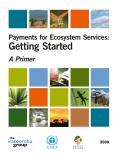The Ministry of Economy, Trade and Industry (METI), the Government of Japan and UNIDO organized the Tokyo Green Industry Conference (TGIC) 2011 on 16-18th November 2011 at the Tokyo Big Sight Conference Centre in Tokyo, Japan. The TGIC aimed to highlight the availability of environmental and resource conservation techniques and practices that are good for business, environment and climate, employees, communities and consumers. The TGIC provided a platform to discuss policy and business solutions for achieving the widespread uptake of today’s proven techniques and technologies and for enabling innovation to deliver longer term solutions that would enable even greater reductions in resource use and pollution intensity. Through related activities organized in collaboration with the INCHEM 2011 environmental technology exhibition, TGIC also provided opportunities to match environmental technology needs of participating developing countries with the international supply of Best Available Techniques (BAT) and Best Environmental Practices (BEP).
Climate change (CC) adaptation and mitigation are identified as priorities in the Updated 2004 – 2010 Medium -Term Philippine Development Plan (MTPDP), in the light of increased occurrence of extreme weather events that are disturbing not only communities and livelihoods, but also the natural resource base, thereby critically threatening the pace of economic growth and development. Recognizing this, the Climate Change Act 1 of 2009 mainstreams CC adaptation and mitigation into government policies.
Against this background, the Philippine Government through its Department of Trade and Industry (DTI) requested GTZ to integrate measures for CC mitigation and adaptation into the Micro, Small and Medium Enterprises (MSME) Development Strategy for the period 2010 to 2016.
These publications by the International Chamber of Commerce (ICC) set out the ICC’s proposed roadmap for the green economy based on 10 conditions that are needed to drive growth in a resource‐constrained world with strong demographic growth. The ICC represents hundreds of thousands of companies in over 120 countries. Some of the key conditions are:

This review asks two questions: first, how have the public and policy debates over green growth evolved; and second, does academic research on economic and climate policy support the claims and assumptions made in these debates, and with what consequences for the green growth hypothesis? As the authors make clear, careful scrutiny of the most popular proposals for “green growth” suggests that they may well succeed at reconciling economic growth and emissions reduction. But it’s by no means clear that they offer general proposals for using the transition to a low-carbon economy to generate growth directly.
